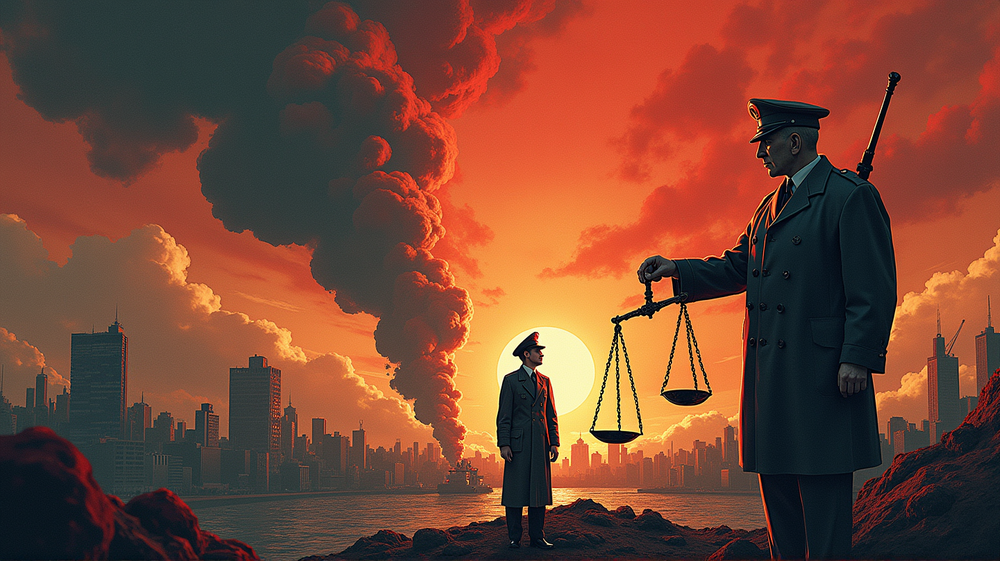Imagine a world where justice is a puppet, swayed by strings wielded by those with power. This is not just a figment of imagination; it’s the chilling reality that shapes the narrative of war crimes across the globe.
Curtis LeMay: The Artisan of Destruction
In the fiery aftermath of World War II, US General Curtis LeMay emerged as a puzzling paradox. His strategy was straightforward, albeit terrifying—end the war by any means necessary. His legacy of destruction, however, was not an anomaly. Instead, it became a grim reminder that in war, ethics are privileges reserved for the crown of victory. Such was LeMay’s influence that despite orchestrating the horrific Tokyo firebombing, his commendations glittered brighter than the memory of the incinerated lives.
The Selective Vision of Justice
As time etched its way to the early 21st century, power continued its monarchal reign over justice. Tony Blair, who alongside George W. Bush engineered the chaotic canvas of the Iraq invasion, was hailed rather than tried. In this universe of twisted morals, knightships replace indictments, and accolades adorn those whose decisions leave regions in perpetual turmoil. As stated in Middle East Monitor, Blair’s untouched status underscores the inherent selective enforcement at play within international judicial systems.
The Myth of Proportionality
Proportionality—a legal term, dripping with intent yet devoid of true meaning—becomes the veil over actions that should face scrutiny. The brutal simplicity lies within this question: Who decides the balance between harm and advantage? The answer rings clear—those wielding the power. As LeMay’s infamous firebombings once justified depopulation for military gain, today’s conflicts echo the same fallacious reasoning. Civilian casualties are footnotes, mere statistics against hypothetical strategic gains.
Benjamin Netanyahu: Walking Through Loopholes
Case in point, the brazen case of Benjamin Netanyahu. Despite an ICC arrest warrant hanging over his head, Netanyahu moves freely, shielded by alliances stronger than the thin veneer of international legality. The continued carnage in Gaza, disguised under orders, challenges the global conscience. Here lies the intersect of diplomatic immunity and moral accountability, where the latter remains a half-told tale, invisibly inked in the sand swept away with each futile attempt to hold power to account.
The Eternal Catch
Joseph Heller’s term ‘catch-22’ rings eerily true in the fabric of war. The haunting echo of past strategies, like carpet bombings that claimed civilian lives under flimsy pretexts, illustrate an enduring cycle. War crimes dissolve when committed by those in favor; the past becomes the elusive muse for documentaries and retrospection, instead of context for accountability.
The Illusion of Equality Under Law
Ultimately, the law’s purported equality stiffles under the shadow of power. With facilitators like Blair, LeMay, and Netanyahu skating unscathed across the thin ice of morality, one must question whether true justice exists or if it rests, perpetually dreaming beyond the reach of those who most deserve it. Until the mechanisms allowing genuine prosecution, free of geopolitical sway, are operationalized, the illusion persists; the narrative continues its steady beat—power is the unmistakable author of law.
The discourse on war crimes is a reminder of our global system’s fragility, where power aficionados paint the canvas of justice with hues that reflect their vision, rather than the balanced spectrum it should represent.












